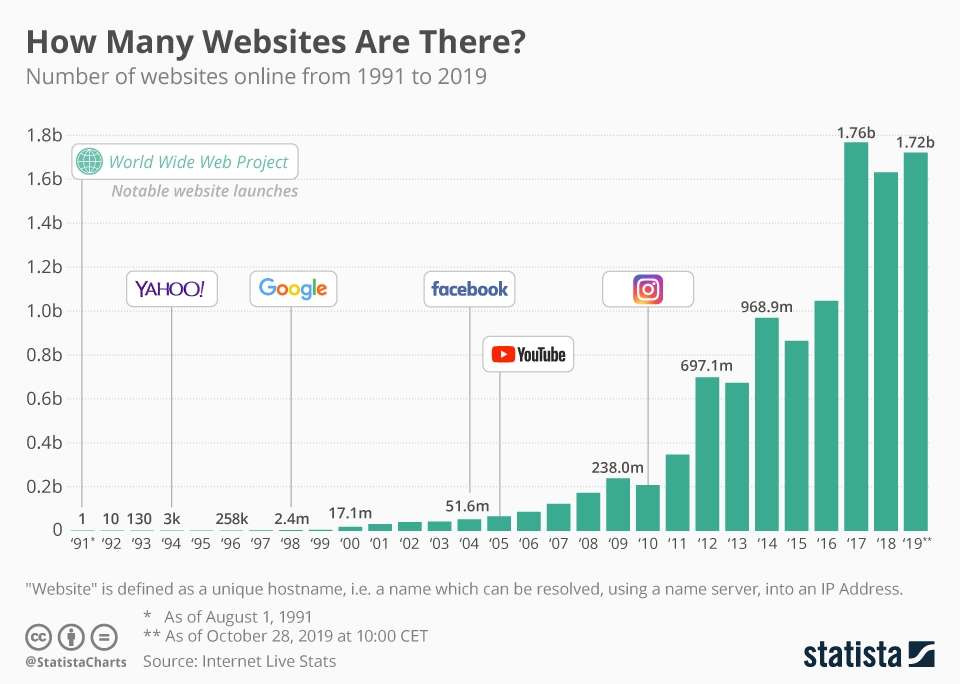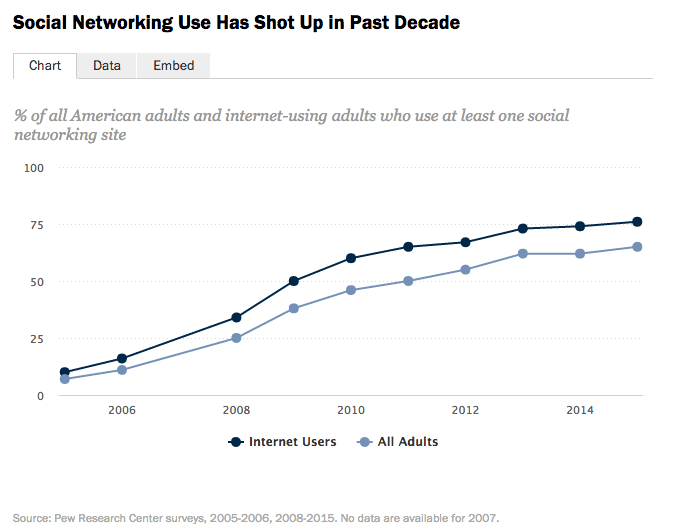1. 1,700,000,000 Websites

There are 1.7 billion websites on the internet, according to Statista. That’s a WHOLE lot. And all those sites mean that there is a lot of competition for digital real estate. This means your site needs to look good, and it needs to function well.
And remember, your website is a tool to sell homes (more on that here), so it needs to function in that capacity.
2. We Trust Online Reviews
Online reviews are vital to your success, according to Bright Local. Did you know that 97% of consumers that shop online will read the online reviews for a business or product before they purchase it? What do your reviews say about you? Do you have 5 luke-warm Google reviews, or do you have 50+ glowing reviews singing praise of the manufactured home buying process?
Here’s something that even surprised us: 91% of 18-34 year olds trust an online review MORE than personal recommendations. The bottom line is that you have to have a great customer experience to get good reviews. And you also have to ask for the review to get it. Don’t be afraid to ask every customer to leave a review. If you took care of them, they’ll be glad to do it. And it will help you line up the next customer.
3. Digital Marketing Budget
Do you have a line item in your budget for digital marketing? If the answer is no, you should add one. There are no successful companies that don’t spend money telling people how amazing their product is (aka marketing).
Marketing is especially crucial in an increasingly digital world. There’s a limited amount of digital real estate, and everyone is competing for your customers attention. For example, Ford and Amazon measure their digital marketing budget in the billions, and that number is going up every year. But the good news is that you can compete. Through keyword research and audience targeting, manufactured home retailers just as effectively as much larger organizations.
And spending money on marketing isn’t just limited to retail and e-commerce. Look at the chart below from the The CMO Survey. EVERYONE is spending money on marketing!

4. Digital Marketing ROI
If someone gave you $2 for every dollar you gave them, would you do it? We’re guessing the answer is ‘yes’. Well, that’s how digital advertising works. Google can track ad spend and revenue, and in study they did of 1000s of businesses, they found that on average, for every dollar businesses spend in ad spend, they get two dollars in revenue. So if you spend $1000 on ads, you should get $2000 in revenue, assuming your ads are done well.
5. Social Media Use
We talk about social media a lot, and for good reason. 71% of Americans are on social media, and that is fairly evenly spread across all demographics. Old, young, rich, poor, male, female, urban, and rural – they are all on social media. You should be too.

6. Facebook as news source
In 2018, Facebook overtook the newspaper as the majority’s source of news. According to a national poll, 52% of Americans get their news from Facebook, NOT their newspaper. This is a fundamental shift in the way that news content is read, and that percentage will only go up.
What’s it mean for the manufactured home retailer? It means you need to be advertising on Facebook. In the 90s, retailers advertised in their local newspaper. And in the 2020s, retailers need to be advertising on Facebook.
7. Worldwide Digital Ad Spend
Digital Marketing is not going anywhere. The ad spend is going up, and the percentage of total media spend is going up. This is how companies must communicate with their prospective buyers.

8. Only 7% of users will reach the second page of a search engine search
If you’re not on the first page, you’re not getting noticed. This is something that you need to test regularly based on keywords that your customer use to find you. And the ultimate goal is to come in at #1, because that’s where many users stop.
Click here to learn more about SEO…
9. Millennials Want to Buy a Home
A full 72 percent of millennials (defined as those aged 24 to 41) say owning a home is a top priority, according to Bank of America’s 2018 Homebuyer Insights Report. By contrast, only 50 percent list getting married and 44 percent list having children as top priorities.
This is a good one to close out on. 3 out of 4 millennials say that purchasing a home is a priority. How are you speaking to them and showing them the value of the homes you sell? Millenials prefer a digital customer experience, and to market and sell to them, you must have a digital marketing plan in place.
